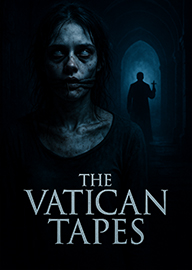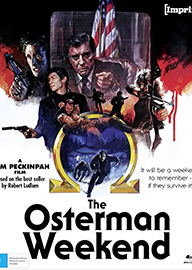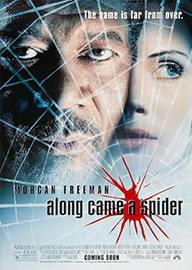In Their Skin
- 5.3
- Horror
- 2012
- 1h 37m
- PG-13
A chilling home-invasion thriller, In Their Skin (2012) traces a grief-stricken family’s attempt at healing in a remote cottage, only to face voyeuristic neighbors whose twisted obsession with perfection turns their sanctuary into a battlefield of identity and survival.













Comments
0Reviews
0Summery
1Please sign in to comment.
Please sign in to review.
They hoped the escape would heal them. After the death of their daughter, Mary and Mark retreat to their woodland cottage with their son, seeking relief from grief and the strain it has placed on everything they once held dear. The house, surrounded by forest and silence, seems to offer a fragile promise of normalcy, a bubble where shared sorrow might weave them together instead of tearing them apart. For a moment there is calm: the light through the trees, the distant sound of birds, the familiar shapes of memory and loss. Their grief hovers but hasn't yet swallowed them. Then the neighbors arrive—smiling, curious, lingering outsiders who break that illusion of safety, like branches tapping at a glass window. The intrusion is polite. Too polite. And in that softness a danger lurks that unravels everything they built to cope.
They come bearing wood and empty pleasantries: the Sakowski family—Bobby, Jane, their son Jared. Their presence seeps into the cottage like a cold breeze. Conversations that seem casual at first—questions about the Hughes family, their lives, their pain—feel oddly invasive, like carefully pointed probes. Mark tries to brush it off; Mary, ever the developer, welcomes the small talk as social grace. But Jared’s eyes, the pauses between Bobby’s gestures, Jane’s too-sweet smile—they all turn familiar spaces into uncanny landscapes. When a child's game turns violent—Jared threatening Brendon with a knife, and Brendon retreating in terror—the veneer of neighborly harmony fractures, and something crackles in the air, splitting their fragile shell of safety.
Mark lashes out. Frustration, fear, and mourning collide in a shattered vase. Outside, the dog is killed, the cars sabotaged, windows shattered. The invasion begins not with masks or screams, but with calculated undermining of the ordinary: a prowling threat in the undergrowth, a boy’s wild swing through glass, a father’s erratic glare, a mother’s soft sob demanding help she cannot yet voice. When Mary and Brendon flee to the bathroom, and Mark arms himself in desperation, the cottage becomes a fortress cracked at its edges. What was meant to be a sanctuary has been claimed, and the intruders—this family of trespassers—become orchestrators of slowly mounting violence. And then, more disturbingly, custodians of the Heimlich strangled normality the Hughes tried to preserve.
Toby’s arrival could have been salvation, but instead becomes a fuse lit under an already volatile situation. A forced calm, brittle like frozen glass, overtakes them all until a single gunshot shatters it. In that moment the house anchors itself in blood and terror. The Sakowskis begin to turn the Hughes home into a theater of cruelty—forcing intimacy and humiliation, transforming love’s most private expressions into weapons. Mary’s refusal—her knife concealed by terror—becomes defiance. A lightning flash of resistance spreads through the Hughes family as they seize a scarred moment to fight back. Mark stands with blood on his hands but clarity in his eyes, confronting Bobby with a truth he never expected to confess: that no family is perfect, not even Kelley’s marriage, torn as it is by suicide, death, and grief. Bobby falls, literalized, as his perfect life—fabricated, grasped, stolen—crashes into the impossibility of genuine imperfection.
When the sirens finally come, dimming the fires of vestal rage, the cottage lies half in ruin, but the Hughes emerge wrapped in grief and sorrow, yes—but also tethered by something the violence could not sever: each other. Their retreat was meant to evacuate their pain, but it trapped them instead, and in its crucible they were reforged, grief tempered by survival, love sharpened by necessity. The camera rests on them, not triumphant, not healed, but held—fragile and enduring, wounded and wary, together. The final images linger longer than comfort should, because this is not the snapshot of victory, but of endurance: a family haunted not by shadow or specter, but by the echo of seeing true malice in human eyes, and still finding each other at the end.